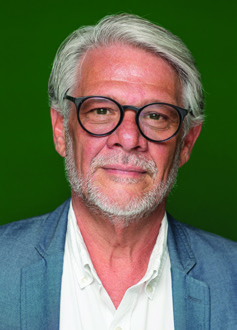It’s important to take time to remember those who struggle with homelessness.
Before 2020, I visited 11 homeless communities and work programs across the United States.
I met single moms, people with addiction issues, people over 65 who couldn’t afford housing after the loss of a spouse, veterans, people who had a mental illness, aged-out foster kids, and victims of domestic violence.
I talked with an ex-college professor who was devastated after a divorce, a young woman with a substance addiction who was prostituted by her mother from the age of 12, an ex-radio personality who got addicted to oxycodone after a tumble from his roof, a 70-year-old widower without the will to live another day.
I met people – flesh and blood, folks, not much different than you or me. Some made bad choices; some were affected by the bad decisions of others.
But one thing they all had in common was being homeless at one point in their lives. Every situation, every person is unique.
As you know, homelessness is a pervasive issue in the United States, and our community is no exception.
The City of Mesa has been diligently collecting and analyzing data on homelessness, revealing a complex web of challenges that demand urgent attention. As we confront the stark reality of individuals and families grappling with homelessness, it becomes evident that a multifaceted approach is required to address the root causes and provide lasting solutions.
According to the latest data posted on the City of Mesa open data portal, the homeless population has experienced a concerning increase over the past few years.
The 2022 data from the Homeless Management Information System states that 4,935 Mesa residents received services for homeless-related causes, many without a stable place to call home. This figure represents statistical data and embodies the human faces behind the numbers—individuals with unique stories, struggles, and aspirations.
Furthermore, the data sheds light on the prevalence of unsafe living environments and financial hardships facing those experiencing homelessness.
Addressing these underlying factors is crucial for breaking the cycle of homelessness. Mesa works collaboratively with mental health organizations, addiction treatment centers, and social service organizations with the goal of establishing comprehensive support systems that cater to the unique needs of individuals experiencing homelessness.
Mesa’s Off the Streets program understands the complexities. As of Oct. 1, they have served 1,871 clients with a success rate of 72.2%. The program serves Mesa’s most vulnerable populations, including families, older people, and people with disabilities. By identifying specific populations, services can be tailored to meet real needs.
Azura and Mesa United Way take a similar approach.
We have identified aged-out foster youth as a population in danger of becoming homeless. In Arizona, 450 of the 900 students who age out of foster care every year are homeless within two years.
Our efforts to provide legitimate, long-term, science-based wraparound services are thriving. We continue to expand the program to meet students’ needs on an individual basis.
We desire that any student who works through the program will NEVER experience homelessness again.
In addition to immediate relief efforts, long-term solutions must be prioritized. Providing vocational training, education opportunities, and employment support can empower individuals to regain their independence and break free from the cycle of homelessness.
The City of Mesa, Azura, Mesa United Way and other nonprofits continue to explore partnerships with local businesses and educational institutions to create pathways for homeless individuals to re-enter the workforce.
Identifying subsets of the homeless population and tailoring services to meet the individual needs of those looking for help is the key, not warehouses for people we don’t want to see, but specified programming for those desiring help.
Because each one has a different story. And they are not much different from us. They are individuals who deserve dignity and assistance.
Mark Young is the CEO of Azura and Mesa United Way.


